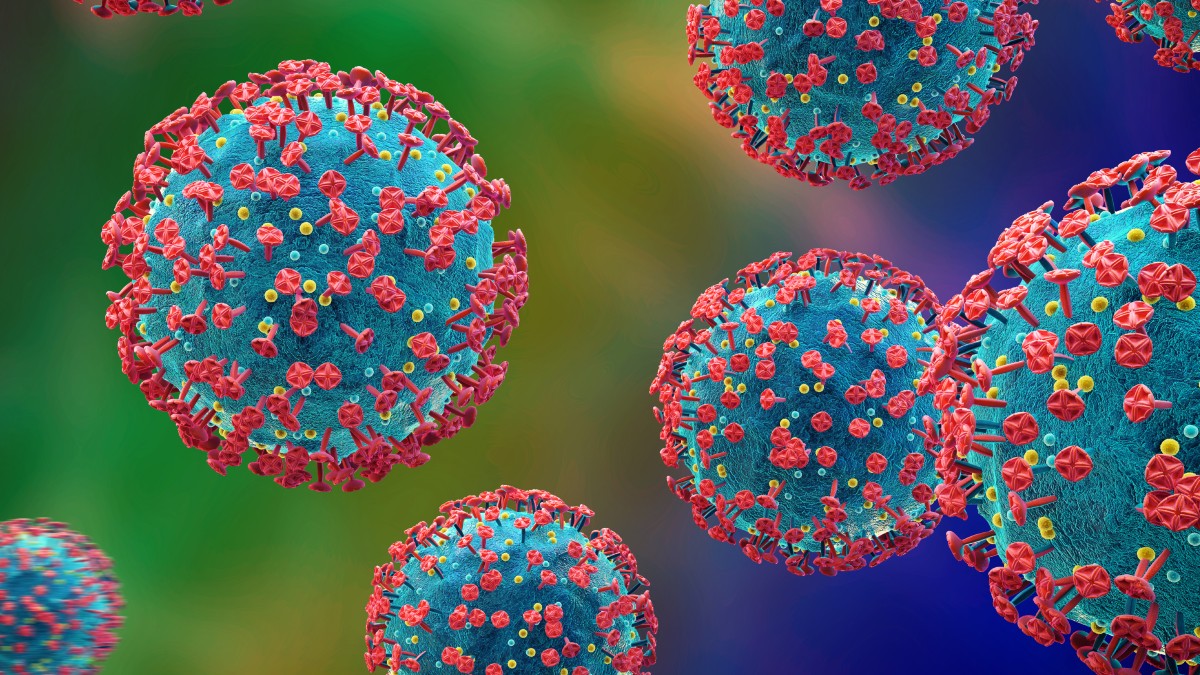Tuesday, Feb. 1, 2022 marks two full years of the coronavirus pandemic in Massachusetts.
The first case of COVID-19 was identified in Massachusetts on Feb. 1, 2020. State health officials announced that a Boston man in his 20s who had recently returned from Wuhan, China, had tested positive for the coronavirus. A month and a half later, the state declared a state of emergency and temporarily shut down schools.
Since that day, nearly 1.5 million COVID cases have been confirmed in the Bay State. Over the weekend, health officials reported more than 12,000 new cases with 2,200 people in the hospital and 83 new deaths.
Dr. Daniel Kuritzkes, chief of infectious diseases and Brigham and Women's Hospital, spoke to NBC10 Boston on Tuesday morning about how far Massachusetts and the nation have come and what is still needed to obtain normalcy.
Get New England news, weather forecasts and entertainment stories to your inbox. Sign up for NECN newsletters.
Surges
As the virus continually mutates, Massachusetts has endured wave after wave of COVID-19 surges by variants including delta and more recently omicron. But the good news is, metrics indicate the spike is taking a downturn.
Case numbers have dropped significantly from peaking numbers at the beginning of the month. State health officials reported a single-day record on Jan. 5, topping 27,000 cases, followed by the second-highest single-day total on Jan. 7, with more than 26,000 cases.
Massachusetts' COVID metrics, tracked on the Department of Public Health's interactive coronavirus dashboard, continue to trend downward after spiking to heights not seen since previous surges, a peak thought to be driven at least in part by the omicron variant.
Despite the downward trend, community transmission levels remain too high for people to let their guard down, according to Kuritzkes.
"Everybody is tired of having to deal with coronavirus, but we have to be patient," he said. "We want to be down to less than 100 cases a day, like we were in the summer of 2020. And again, as we were in late last spring and into the summer."
Vaccination
We've come a long way since the start of the pandemic, Kuritzkes said, pointing to the development of coronavirus treatment and vaccines.
"We've made just extraordinary progress," he said. "I think you'd have to count first of all the rapid development of several highly effective and safe vaccines as the most important accomplishment. But we've also made major strides in knowing how to treat people who are sick enough that they get hospitalized with COVID and we now have several very effective ways of treating people who have symptomatic COVID, are at risk of developing severe disease but are still well enough to be at home."
Also on Tuesday, U.S. regulators urged Pfizer to apply for emergency authorization for a two-dose regimen of its COVID-19 vaccine for children six months to 5 years old while awaiting data on a three-dose course. The aim is to clear the way for the shots as soon as late February.
"I think this would be a really important step forward because we know that children are very often the group that spread respiratory viruses in the home to older people, their parents and grandparents," Kuritzkes said. "I've been looking forward to getting my two granddaughters vaccinated as soon as possible. I want people to know that these vaccines are safe and that they're effective once we see the data to prove that."
New Normal
After two years of living with this virus, most Americans think COVID-19 is here to stay. According to a Monmouth University poll, 70% of Americans think it's time to learn to live with the virus. We are still a ways away from that, according to Kuritzkes.
"We still have to work towards getting everybody vaccinated, but I think the next phase is going to be tracking the incidence of coronavirus infection to see when it gets down to a level that we are really living with it, just like we live with influenza," Kuritzkes said.
He compared the COVID-19 pandemic to the flu. There's endemic flu that occurs in the winter months and then the case numbers go down, with occasional cases in the late spring in the summer before it then returns the following winter.
"Those are just endemic cases as opposed to epidemic outbreaks that occur in the winter time," Kuritzkes said. "And during those epidemic times we may be going back to masking or taking more precautions to prevent the spread of illness as it's done in many parts of the world, even."
Check out our weekly COVID question and answer series
A panel of Boston-based doctors talking about everything related to the COVID-19 pandemic live on Facebook every Tuesday at 10:30 a.m.



